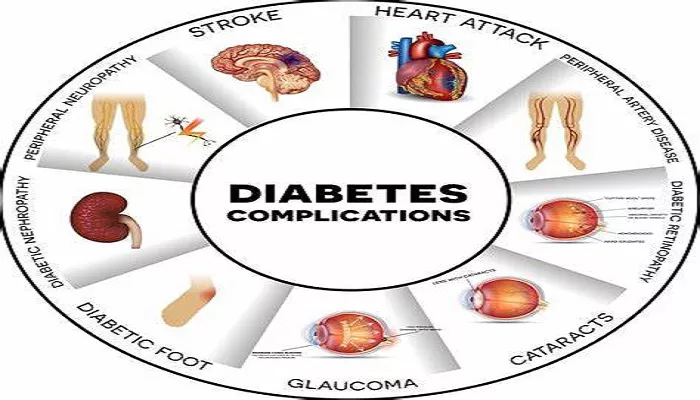Local people often harbor misunderstandings about staple foods. Some believe, “It’s okay to eat a lot of meat. As long as I avoid staple foods, I won’t gain weight.” Others view carbohydrates as a “villain,” thinking that not eating or eating very little of staple foods can reduce the metabolic burden and prevent health issues like diabetes. However, the reality may be completely different.
Not Eating Staple Foods Raises Diabetes Risk
A 14 – year follow – up study of nearly 40,000 adults revealed that those who stuck to a low – carbohydrate, high – fat, and high – protein diet (with carbohydrate intake less than 38%) had a 20% higher risk of developing type 2 diabetes compared to those with a more balanced diet (where carbohydrate intake was greater than 55%).
Carbohydrates are at the top among the three essential nutrients for humans. The glucose produced when they break down in the body is the main energy source for the human body and also takes part in many biochemical reactions. Insufficient carbohydrate intake can cause hypoglycemia, endocrine and metabolic disorders, excessive fat breakdown, and over – consumption of protein in the body, affecting various bodily functions.
A low – carb diet is similar to a ketogenic diet. It restricts carbohydrate intake, promotes fat breakdown and the formation of ketone bodies, which are then excreted through increased water intake. This diet was initially created to treat epilepsy.
While it can lead to rapid short – term weight loss, in the long run, it may not only cause weight rebound but also increase the risk of type 2 diabetes and even harm the cardiovascular and cerebrovascular systems. So, it’s not recommended for ordinary people to adopt it blindly.
Side Effects of Inadequate Staple Food Intake
Besides increasing the diabetes risk, not eating enough staple foods can cause other health problems
Malnutrition: When staple foods are reduced, protein – rich foods are burned as calories. As a result, the amount of protein actually available for the body drops significantly, leading to malnutrition, poor skin condition, severe hair loss, and weakened immunity.
Muscle Loss: Protein is crucial for muscle growth and repair. If the body lacks carbohydrates, it will start consuming muscles. This also raises the risk of osteoporosis in the elderly.
Memory Impairment: Research shows that not eating carbohydrates for a week may damage memory and cognitive abilities. Long – term carbohydrate deficiency means brain cells lack energy, reducing learning and thinking abilities.Drowsiness and
Fatigue: Eating less staple food means human cells and tissues lack “fuel,” and energy metabolism goes wrong. People then feel tired, drowsy, and sluggish.
Hypoglycemia: Glucose is the main energy source for the body. Insufficient staple food intake easily leads to a lack of glucose and can even cause hypoglycemia.
Mood Depression: Carbohydrates help the body secrete serotonin, a chemical that makes the brain feel happy. Also, without enough glucose, basic brain functions are affected, causing irritability and depression.
Appropriate Staple Food Combinations for Different GroupsA balanced diet is key to good metabolism. To ensure a healthy diet, the most scientific approach is to follow the “Chinese Residents’ Balanced Diet Pyramid,” consume various nutrients evenly, and choose high – quality carbohydrates, proteins, and fats.
For People Who Need to Lose Weight or Control Sugar Intake
Those aiming to manage their weight or control blood sugar should cut down on refined carbohydrates and moderately increase the intake of high – quality ones.Highly processed rice and noodles are refined carbohydrates with a high glycemic index. They can cause a quick spike in blood sugar, burdening pancreatic beta cells and leading to metabolic problems like obesity and high post – meal blood sugar.
Whole grains, legumes, etc., are sources of high – quality carbohydrates. They are rich in dietary fiber and have a low glycemic index. Replacing some refined rice and white flour with them can not only make people feel full but also provide enough energy and effectively prevent rapid post – meal blood sugar rises.
Although fresh fruits are a source of high – quality carbohydrates, they are rich in fructose. People controlling their blood sugar should not eat them in large amounts. A daily intake of 200 – 350 grams is appropriate.
For Most Ordinary People
In daily life, it’s a good idea to eat more whole grains such as brown rice, red rice, black rice, oats, quinoa, and buckwheat, as well as legumes like red adzuki beans, mung beans, kidney beans, and chickpeas. Aim for a daily intake of 50 – 150 grams, which is about 30% – 40% of the total carbohydrate intake. People with weak digestive systems can reduce the amount accordingly.
Most nuts are rich in polyunsaturated fatty acids and are also important sources of high – quality carbohydrates and fats. Eating 25 – 35 grams per day is recommended.Some foods rich in resistant starch, like corn and tubers, can also help slow down blood sugar increases.
Related topics


